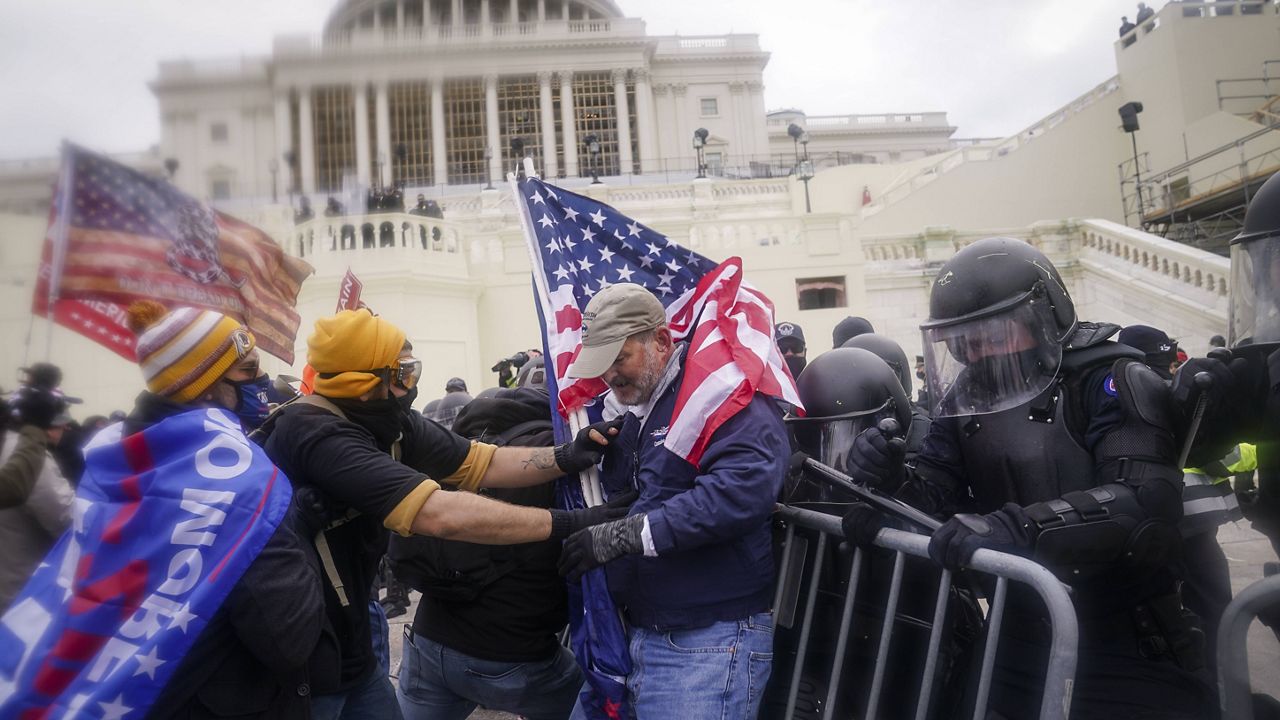The House passed a bill on Wednesday which would create a bipartisan, independent commission to investigate the Jan. 6 Capitol riot.
Despite the fact that 35 House Republicans joined every Democrat in the chamber to pass the measure — which succeeded in a 252-175 vote — it faces an uphill battle in the evenly divided 50-50 Senate.
Because of the Senate’s 60-vote filibuster threshold, 10 Republicans would need to join all 50 Democrats in the Senate for the measure to pass — likely a tall order, even though seven GOP Senators voted to convict former President Donald Trump for his role in inciting the deadly Capitol riot.
The bill faces staunch opposition from Republican Congressional leadership, most notably House Minority Leader Kevin McCarthy — who saw nearly three dozen members of his caucus rebuke him on the vote — and Senate Minority Leader Mitch McConnell, despite the fact that the bill was, in part, negotiated by Republican Rep. John Katko, the ranking member of the House Homeland Security Committee.
Republicans have argued that the commission — which was modeled after the 9/11 Commission — would be duplicative to efforts being conducted by law enforcement and Congressional committees.
“It’s not at all clear what new facts or additional investigation yet another commission could actually lay on top of existing efforts by law enforcement and Congress,” McConnell said Wednesday, noting that law enforcement investigations and bipartisan committee probes are ongoing.
On Thursday, Alabama Sen. Richard Shelby had this to say about the bill: “If it’s not dead, it’s been slow-walked and is short of breath.”
Sen. Richard Burr, R-N.C., who voted to convict Trump during his second impeachment trial, said Thursday that he will oppose the commission, noting he believes that the “appropriate course” is to allow the “committees with jurisdiction” to lead investigations.
“I don’t believe establishing a new commission is necessary or wise,” he added.
Sen. John Thune, the No. 2 Republican in the Senate, declined to say whether or not he would be whipping votes on the Jan. 6 commission, and said he “did not know” whether or not the commission was dead: “We will see. It came out of the House.”
Regardless of Republican opposition, Democrats are adamant that there will be a floor vote in the Senate on the commission.
Senate Majority Leader Chuck Schumer put the bill on the Senate’s legislative calendar and said that there will be a vote on the measure “very soon.”
“My Senate Republican colleagues must now ask themselves are they going to join us in pursing the truth or are they going to cover for Donald Trump and his 'Big Lie,’” Schumer said Thursday, adding that he hopes that “Republican colleagues will step up and join with Democrats to establish the commission.”
House Speaker Nancy Pelosi cheered the 35 Republicans who joined her caucus to pass the bill forming the commission, noting that it shows the measure “was a bipartisan product, negotiated in good faith.”
Pelosi said her “overwhelming preference” is for the bipartisan commission to be formed, but the California Democrat noted that she has other options, including the prospect of impaneling a Democrat-led select committee, not unlike the committee established in 2014 by then-House Speaker John Boehner to investigate the Benghazi attack.
“I certainly could call for hearings in the House with a majority of the members being Democrats, with full subpoena power, with the agenda being determined by the Democrats, but that’s not the path we have chosen to go,” Pelosi said.
“We are taking this one step at a time. What we’ve said we want is a bipartisan commission,” she added. “I don’t want to weaken that position. Everybody knows what my options are, they are no secret. But the preference, not only preference, overwhelming preference, is for bipartisanship.”
“If they don't want to do this, we will,” Pelosi said of Senate Republicans, but downplayed concerns of their resistance to the bill: “I don’t think that what we’ve heard from the Senate is so bad compared to what we usually hear from the Senate.”
Meanwhile, the House voted Thursday by a slim 213-212 margin, with 3 House Democrats voting “present,” to approve $1.9 billion in spending to bolster Capitol security in the aftermath of the deadly insurrection.
The bill was developed based on the findings of the task force led by retired Army Lt. Gen. Russel Honoré, who conducted a review of Capitol security in the aftermath of the riot.
The measure would reimburse the National Guard $520.9 million and Washington, D.C., $66.8 million for costs incurred required to secure the Capitol, in addition to providing $250 million for security on the Capitol grounds, $162 million to reinforce doors and windows at the Capitol, $200 million to create a “Quick Reaction Force to augment the Capitol Police” and $39.5 million to help prosecute riot suspects.
More than 400 people have been charged in connection with the Jan. 6 riot at the U.S. Capitol.



